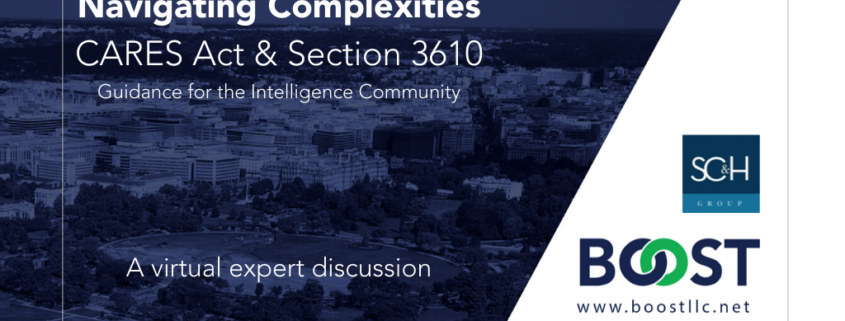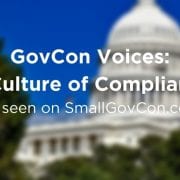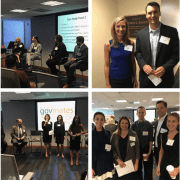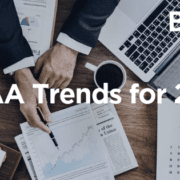The CARES Act and 3610 Guidance for the Intelligence Community
Updated 03/10/2023
Guidance for the Intelligence Community is always changing. Yet currently those changes seem to be in hyper-drive. Luckily, we have experts like Amy Hernandez at BOOST LLC and partners like Pete Ragone from the SC&H Group to help us navigate these waters.
In an information-packed hour-long virtual discussion, Amy and Pete walked attendees through the top questions (and answers) they’ve received regarding this spring’s pressing changes as they pertain to the Intelligence Community. Below, you’ll find some of what they discussed. For the full discussion, please visit the webinar replay here.
Where do we stand in regard to PPP/Tax Credits vs. Class Deviation 3610?
Questions and dilemmas abound. Amy & Pete advised clients in the intel space that they may be able to invoice regarding lost time. Many contractors wanted to apply both the PPP Loan and the Class Deviation 3610. Yet, the CARES Act did not fill the gap of March 13th-March 27th (as of May 28th) when many contractors were suddenly not able to work at their assigned location in support of Government programs. Unfortunately, you are unable to invoice under 3610 and take the PPP loan or tax credit. It’s one or the other. If you take the tax credit or PPP, you won’t get reimbursement under CARES Act 3610. But stay tuned, this could be modified as updated guidance related to the CARES Act is released in the coming weeks. This is a key point to note, as it’s in your best interest to only apply for the one that will give higher returns, whether it be the tax credit and PPP or the CARES Act section 3610.
What key guidance has come out relating to CARES Act 3610?
Key guidance posted on May 18th includes an overarching implementation guidance and checklist (with instructions). The guidance references that contractors can be reimbursed at their bill rates, which include profit. However, companies have to certify costs without profit for reimbursement. When seeking reimbursement, contractors are effectively having to disclose profit to the government and primes. Those without cost-plus contracts may not have fully-FAR-31-compliant cost accounting systems (which best practice says you should). In the long run, this may change the landscape for the IC in billing and proposals going forward due to the fact that 3610 is only reimbursing costs for 2020. The worry is that in the next option year negotiations may be adversely affected, given that companies invoicing under 3610 have now informed customers/primes what their profit is on individual labor rates.
What are the cost accounting implications of invoicing under CARES Act 3610?
If you’re having to track costs by contract, you need to make sure you have a separate time charge/leave code for COVID Leave or however you’re tracking work changes due to the pandemic. Most banks are sending PPP funds to a separate account, to assist with tracking as everything needs to be specifically tagged in regard to these funds. If you’re able to invoice under 3610, leave recorded as fringe costs do not stay as fringe, they need to be reclassified as direct labor once invoiced. We repeat, once you invoice it is no longer fringe, but a direct cost under that contract. Those costs can only be billed under that contract, by FAR definition it becomes a direct cost. When calculating your indirect cost rates, ensure that COVID costs invoiced under CARES Act 3610 are removed from the fringe pool. (Check out the video for some of the more in-the-weeds, guidance for your chart of accounts.)
What are potential future contracting implications once things return to “normal”?
Depending on the funding of certain programs, there may be more limited additional 3610 availability. They will be funded but increases to contract funding will need to be priced out and supported. Short term, the government will continue with current spending habits as the debt ceiling raises. In the long term, there may be some tightening of funding on the horizon. Be prepared for a higher likelihood of justification for pricing going forward. To prepare, document, document, document. This exercise requires businesses to have elements of a compliant accounting system. In fairness, you should always have a compliant accounting system, but if CARES Act 3610 is what it takes to get you into gear, it’s for the best to make this change anyway.
Action Items:
- Have a good, clean accounting system.
- Determine your financial health by contract and your business as a whole when deciding which funding/opportunities to take.
If you find yourself looking for additional guidance on CARES Act 3610, a resource for implementing compliant accounting systems, or other questions regarding the most up-to-date released guidance, let’s connect. Our BOOST experts can get the information you need or connect you with our smart partners, like Pete, who have a breadth of knowledge in these areas.
















